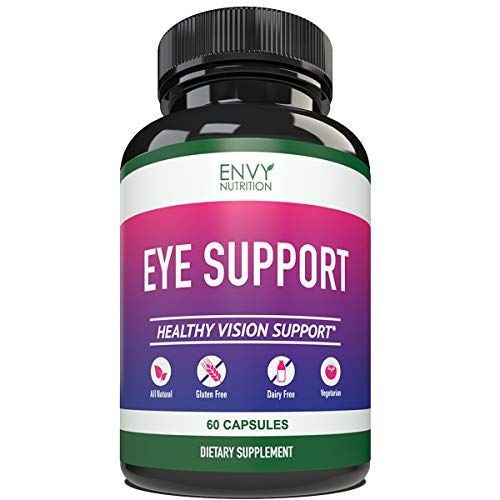Eye inflammation, also known as ocular inflammation, represents a multifaceted health concern that can impede visual acuity, disrupt daily life, and compromise overall well-being. Various factors contribute to eye inflammation, including allergies, infections, autoimmune disorders, and even environmental triggers. Managing eye inflammation requires a comprehensive approach, and the incorporation of specific dietary supplements may play a pivotal role in ameliorating symptoms and promoting ocular health. This article delves into the realm of dietary supplements tailored for the reduction of eye inflammation, while also exploring their mood-boosting properties.
Understanding the Complexity of Eye Inflammation
Before delving into the specifics of supplements, it is imperative to grasp the underlying mechanisms of eye inflammation. The ocular surface, particularly the conjunctiva and cornea, harbors a plethora of immune cells that respond to pathogenic insults or irritants. This immune response may lead to a phenomenon known as conjunctivitis, characterized by redness, swelling, and discomfort. Chronic inflammation can also give rise to conditions such as dry eye syndrome, uveitis, and scleritis. The psychological ramifications of persistent ocular inflammation cannot be disregarded, as patients often report heightened levels of anxiety and depression, significantly impacting their quality of life.
The Role of Antioxidants in Combatting Inflammation
Antioxidants play a crucial role in neutralizing free radicals, which can perpetrate oxidative stress and contribute to ocular inflammation. Oxidative stress occurs when there is an imbalance between free radical production and antioxidant defenses, leading to cellular damage. Incorporating specific supplements rich in antioxidants can mitigate inflammation and support overall eye health.
Vitamin C and E: Dual Shield against Ocular Inflammation
Vitamin C (ascorbic acid) is a potent antioxidant known for its ability to scavenge free radicals. Studies have demonstrated that Vitamin C can ameliorate the ocular inflammatory response by enhancing the healing process of corneal epithelium and reducing the incidence of cataract formation.
Similarly, Vitamin E, a fat-soluble antioxidant, protects cell membranes from oxidative damage and modulates immune function. Inflammatory markers such as interleukin-6 (IL-6) and tumor necrosis factor-alpha (TNF-α) show reduced activity in the presence of adequate Vitamin E, leading to diminished ocular inflammation.
Omega-3 Fatty Acids: Nature’s Anti-Inflammatory Powerhouses
Omega-3 fatty acids, predominantly found in fatty fish and flaxseeds, possess profound anti-inflammatory properties. The two primary types, eicosapentaenoic acid (EPA) and docosahexaenoic acid (DHA), actively participate in the synthesis of resolvins and protectins—compounds crucial for resolving inflammation. Clinical trials indicate that the supplementation of omega-3 fatty acids can significantly reduce dry eye symptoms by enhancing tear production and improving tear film stability.
Moreover, the mood-boosting effects of omega-3 fatty acids have been well-documented. Several studies have linked omega-3 intake to reductions in depressive symptoms and anxiety, thereby cultivating a positive emotional state that can indirectly influence the perception of ocular discomfort.
Herbal Remedies: Nature’s Bounty for Inflammation Relief
Numerous herbal supplements have gained traction in the holistic management of eye inflammation. Turmeric, with its active compound curcumin, exhibits outstanding anti-inflammatory and antioxidant properties. Research has shown that curcumin can inhibit the production of pro-inflammatory cytokines, thereby curtailing the inflammatory cascade that affects ocular tissues.
Green tea is another herbal powerhouse; it contains catechins, which possess remarkable anti-inflammatory effects. The bioactivities of green tea can potentially alleviate symptoms of allergic conjunctivitis and reduce eye redness and swelling.
The Influence of Mood on Ocular Health
The interconnection between mood and ocular health is an often-overlooked aspect of inflammation management. Psychological well-being plays a critical role in inflammation pathways. Stress and anxiety can exacerbate inflammatory responses, creating a cyclic relationship between mental health and physical symptoms.
Understanding the links between stress reduction and inflammation alleviation is vital. Integrating mood-enhancing supplements, such as B vitamins and magnesium, can foster emotional equilibrium and indirectly reduce the perception and severity of eye inflammation.
The Importance of a Holistic Approach
While dietary supplements play a significant role in combating eye inflammation, it is essential to adopt a holistic lifestyle that supports overall eye health. A balanced diet, rich in antioxidants and anti-inflammatory compounds, should be complemented by regular exercise and proper hydration. Sleep quality significantly impacts the body’s inflammatory response; hence, prioritizing restorative sleep can aid in reducing ocular inflammation.
In addition to dietary considerations, environmental factors should not be ignored. Limiting exposure to irritants, such as smoke and pollutants, and practicing good screen hygiene can be beneficial. Moreover, regular eye examinations are crucial for early detection and management of potential ocular conditions.
Concluding Thoughts
In conclusion, the integration of specific dietary supplements can offer significant benefits in reducing eye inflammation and enhancing mood. Vitamins C and E, omega-3 fatty acids, and herbal remedies like turmeric and green tea are pivotal in supporting ocular health through their anti-inflammatory and antioxidant properties. Furthermore, understanding the bidirectional relationship between mood and inflammation can guide individuals in implementing a comprehensive management approach. The pursuit of eye health is not merely a physiological endeavor; it encompasses a holistic strategy that harmonizes emotional and physical well-being. By addressing both eye inflammation and mood, one can significantly enhance their quality of life and visual experiences.
